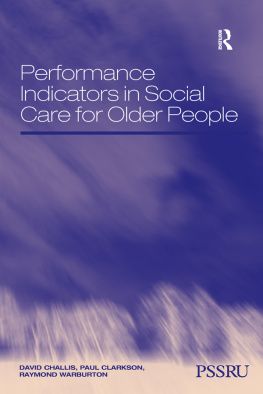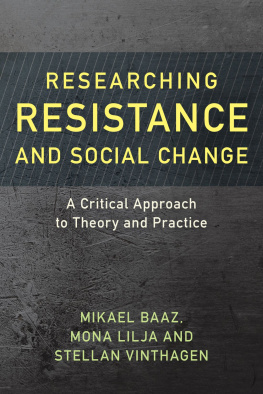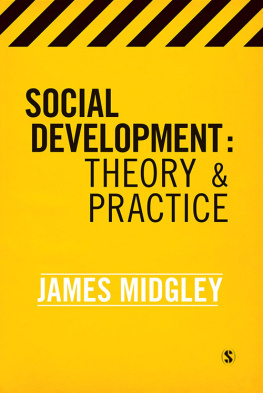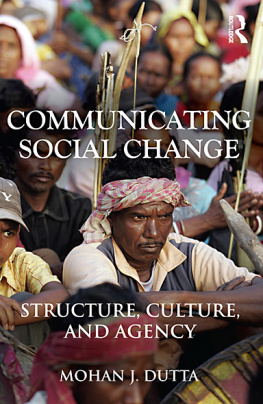The International Library of Sociology
THE CONDITIONS OF SOCIAL PERFORMANCE
Founded by KARL MANNHEIM
The International Library of Sociology
SOCIAL THEORY AND METHODOLOGY
In 22 Volumes
I | Causation and Functionalism in Sociology | Isajiw |
II | The Conditions of Social Performance | Belshaw |
III | Explanation in Social Science (The above title is not available through Routledge in North America) | Brown |
IV | From Max Weber: Essays in Sociology | Gerth and Wright Mills |
V | The Fundamental Forms of Social Thought | Stark |
VI | An Introduction to Teaching Casework Skills | Heywood |
VII | Key Problems of Sociological Theory | Rex |
VIII | The Logic of Social Enquiry | Gibson |
IX | Marx His Times and Ours | Schlesinger |
X | Montesquieu | Stark |
XI | The Nature and Types of Sociological Theory (The above title is not available through Routledge in North America) | Martindale |
XII | Oppression | Grygier |
XIII | Philosophy of Wilhelm Dilthey | Hodges |
XIV | Sentiments and Activities (The above title is not available through Routledge in North America) | Homans |
XV | A Short History of Sociology | Maus |
XVI | Sociology (The above title is not available through Routledge in North America) | Johnson |
XVII | The Sociology of Knowledge | Stark |
XVIII | The Sociology of Progress | Sklair |
XIX | The Theory of Social Change | McLeish |
XX | Understanding Human Society (The above title is not available through Routledge in North America) | Goldschmidt |
XXI | Value in Social Theory (The above title is not available through Routledge in North America) | Streeten |
XXII | Wilhelm Dilthey | Hodges |
THE CONDITIONS OF SOCIAL PERFORMANCE
An Exploratory Theory
by
CYRIL S. BELSHAW
First published in 1959
by Routledge
Reprinted in 1998, 2000, 2002
by Routledge
2 Park Square, Milton Park, Abingdon, Oxon, OX14 4RN
Transferred to Digital Printing 2007
Routledge is an imprint of the Taylor & Francis Group
1959 Douglas V. Verney
All rights reserved. No part of this book may be reprinted or reproduced or utilized in any form or by any electronic, mechanical, or other means, now known or hereafter invented, including photocopying and recording, or in any information storage or retrieval system, without permission in writing from the publishers.
The publishers have made every effort to contact authors/copyright holders of the works reprinted in The International Library of Sociology.
This has not been possible in every case, however, and we would welcome correspondence from those individuals/companies we have been unable to trace.
British Library Cataloguing in Publication Data
A CIP catalogue record for this book is available from the British Library
The Conditions of Social Performance
ISBN 0-415-17501-1
Social Theory and Methodology: 22 Volumes
ISBN 0-415-17818-5
The International Library of Sociology: 274 Volumes
ISBN 0-415-17838-X
Publishers Note
The publisher has gone to great lengths to ensure the quality of this reprint but points out that some imperfections in the original may be apparent
For Adrian
I have attempted this essay, not because it lies within my field of competence, but because I have long felt that it needed to be done. In the past I have been mainly engaged in field studies or studies of an interpretative character, and I have felt the lack of theoretical rigour in the discussion of problems concerned with what we normally think of as socio-economic development, at least when anthropologists and sociologists attack them. Not that I believe that there is only one mode of explanation: far from it. To me, the economists have become so concerned with their methodology that they are now limited and circumscribed by it, so that a problem is not a problem unless it fits in with current methodological preconceptions. I want them to loosen up.
On the other hand, sociologists addressing these problems have in my view usually been too taxonomic in their approaches, and anthropologists far too empirical and intuitive to stand up to detached logical criticism. I write too taxonomic, too empirical, and so forth. By this I do not mean that they should not be taxonomic or empirical: I only mean that some of them should concern themselves with other modes of analysis. Just as I would ask that some economists consider asking our kinds of questions in our kinds of ways, but would not dream of suggesting that the foundations of economic analysis be cast aside in the search for greater breadth.
This essay is an excursion towards model building by an anthropologist who is more at home in the world of interpretive scholarship, who dislikes the feel of mathematics, and who believes that quantification causes as many misinterpretations as correct ones. Yet I believe that this is the direction in which some of anthropology must go, and although I am not competent by training or temperament to do much about it, I can at least perhaps push some of my colleagues into doing what I cannot do, either by elaboration of what is begun here, or by the violent reaction of disagreement.
But I must say I have been intrigued by what I have seen of the work of others during this process, by the sceptical, raised eyebrows of some of my colleagues in several disciplines, and above all by what I have had to re-write in order to make my statements more accurate after mathematically trained friends had endeavoured to phrase them symbolically. In this connection I am deeply grateful to Mr K. Subramanian of the United Nations Research Institute for Social Development and to Dr Braxton Alfred of the Department of Anthropology in the University of British Columbia.
The first draft of this essay was written during the tenure of a John Simon Guggenheim Memorial Fellowship, with which I worked at the United Nations Research Institute for Social Development in Geneva. I am considerably indebted to the Foundation and the Institute for the grant and the hospitality, without which this essay certainly would not have been written. I am also grateful to the Research Committee of the University of British Columbia for grants which enabled the work to go forward, and the text to be revised.










